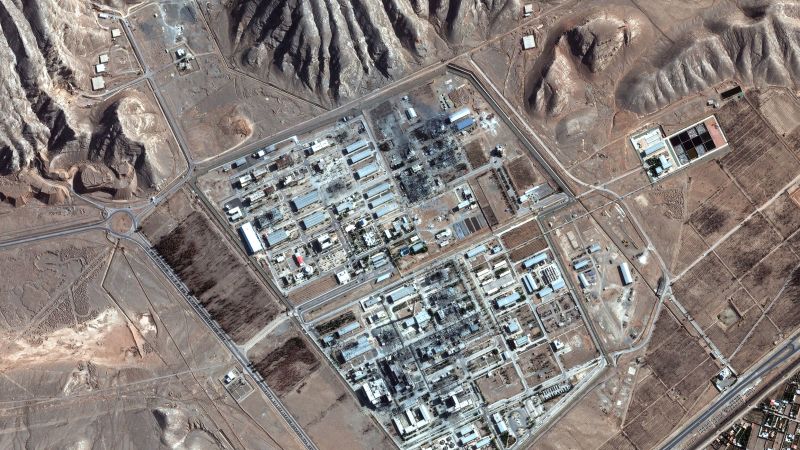
Iranian President Masoud Pezeshkian has officially approved a controversial law to suspend cooperation with the International Atomic Energy Agency (IAEA). This decision, announced on Wednesday, is poised to complicate any future attempts by Tehran to restart its nuclear program, which has been under international scrutiny. The move follows a parliamentary vote last week that set the stage for this significant policy shift.
The Iranian government accuses the IAEA of colluding with Israel, alleging that the agency has facilitated attacks on its nuclear facilities. These accusations have been firmly denied by the IAEA. President Pezeshkian has directed Iran’s Atomic Energy Organization, the Supreme National Security Council, and the Ministry of Foreign Affairs to commence the implementation of this new law, as reported by Iran’s state-run news agency IRNA.
Background and Implications
This development comes in the wake of heightened tensions between Iran and Israel. Last month, Israel launched a series of attacks targeting Iranian military commanders and nuclear facilities. The United States subsequently conducted strikes on Iranian nuclear sites in Natanz, Isfahan, and Fordow, leading to a 12-day conflict that concluded with a ceasefire last week.
Iran’s facilities suffered significant damage, yet Tehran has expressed its determination to continue enriching uranium, asserting the peaceful nature of its nuclear ambitions. The IAEA, however, has raised concerns, stating that Iran’s uranium enrichment is nearing weapons-grade levels. This prompted the agency to issue a resolution censuring Iran, further straining relations.
“We are aware of these reports. The IAEA is awaiting further official information from Iran,” an IAEA spokesperson told CNN.
Expert Opinions and Historical Context
Experts suggest that Iran’s decision to halt cooperation with the IAEA could be a strategic maneuver to gain leverage in future negotiations. Dr. Ali Reza, a Middle East analyst, notes, “Iran is likely using this as a bargaining chip. By suspending cooperation, they are signaling their dissatisfaction with the current diplomatic landscape.”
Historically, Iran’s nuclear program has been a point of contention. The 2015 nuclear agreement, from which the United States withdrew in 2018 under President Donald Trump, was initially designed to limit Iran’s nuclear capabilities in exchange for the lifting of economic sanctions. Since the withdrawal, Iran has incrementally increased its nuclear activities, leading to international concern.
Looking Forward: Potential Consequences
With the suspension of IAEA oversight, the international community faces uncertainty regarding the true extent of Iran’s nuclear activities. The Non-Proliferation Treaty (NPT), to which Iran is a signatory, mandates regular inspections to ensure nuclear programs remain peaceful. Without these inspections, the risk of escalation increases.
Iran’s Supreme Leader Ayatollah Khamenei has consistently denied any intention to develop nuclear weapons, citing religious prohibitions against weapons of mass destruction. However, the lack of transparency could exacerbate regional tensions and provoke further international intervention.
On Sunday, the IAEA stated, “US strikes on Iran fell short of causing total damage to the program and that Tehran could restart enriching uranium ‘in a matter of months.'”
As the situation unfolds, diplomatic efforts may intensify to bring Iran back into compliance with international norms. The global community will be closely monitoring Iran’s next steps, as any advancement in its nuclear program could have far-reaching implications for regional stability and international security.






